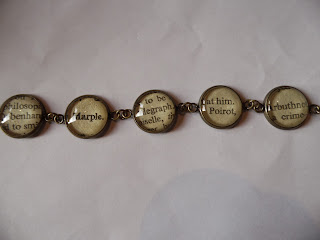I thought I would end the year, and welcome in 2014 with a books I've read in 2013 post. Basically, it's a giant list of what I've read this year! Are you ready?!
- Life of Pi by Yann Martel
- Cuckoo by Julia Crouch
- How to Fall by Jane Casey
- The Secret Rooms by Catherine Bailey
- The Sweetness at the Bottom of the Pie by Alan Bradley
- Stalkers by Paul Finch
- The Carrier by Sophie Hanah
- The Weed that Strings the Hangman's Bag by Alan Bradley
- Aprons and Silver Spoons by Mollie Moran
- Someday Find Me by Nicci Cloke
- True Grit by Charles Portis
- Human Remains by Elizabeth Hayes
- Husband Missing by Polly Williams
- Tigers in Red Weather by Lisa Klaussman
- The Betrayal of Trust by Susan Hill
- The Day I Met Suzie by Chris Higgins
- Instructions for a Heatwave by Maggie O'Farrell
- The Light Between Oceans by M.L.Steadman
- Big Brother by Lionel Schriver
- The Silent Wife by A.S.A Harrison
- The Unquiet Grave by Stephen Dunne
- Girl Least Likely To by Liz Jones
- I Laughed, I Cried by Viv Groskop
- The Woman in White by Wilkie Collins
- The Painted Bridge by Wendy Wallace
- The Sleeper by Emily Barr
- Take your Last Breath by Lauren Child
- Murder on the Home Front by Molly Lefebure
- The Other Typist by Suzanne Rindell
- The Ocean at the End of the Lane by Neil Gaiman
- The Vanishing Act of Esme Lennox by Maggie O'Farrell
- Dot by Araminta Hall
- The Sacred River by Wendy Wallace
- Snow White Must Die by Nele Neuhaus
- It's Raining Men by Milly Johnson
- A Heart Bent out of Shape by Emylia Hall
- The Hundred and One Dalmations by Dodie Smith
- The Boy in the Girl's Bathroom by Louis Sacher
- The White Queen by Philippa Gregory
- Pharaoh by David Gibbins
- The Orphan Choir by Sophie Hannah
- A Sixpenny Song by Jennifer Johnson
- A Pleasure and a Calling by Phil Hogan
- The Dead in their Vaulted Arches by Alan Bradley
- Voices by Arnuld Indridasson
- The Great British Murder by Lucy Worsley
- Forrest of Lost Souls by Anne Plichota and Cendrine Wolf
- Just What Kind of Mother are you? by Paula Daly
- Like This, For Ever by Sharon Bolton
- Not Without You by Harriet Evans
- The Stranger You Know by Jane Casey
- Love, Nina by Nina Stibbe
It's a longer list than I thought it was going to be. I do have weeks when I don't manage to
finish a book at all, then suddenly can read 3 in a week - how is that
possible?
Of all the books here, only one made me cry (I'm so tough)
and that was the emotive The Light Between Oceans which I loved.
Beautiful covers awards go to Tigers in Red Weather,
Instructions for a Heatwave and The Other Typist.
And for read of 2013, I have to award the prize to The
Ocean at the End of the Lane which I adored - review up next year for
anyone who hasn't read it yet. It's
also just won the National Book Award Book of the Year so clearly a good
choice!
Miss Chapter x
















